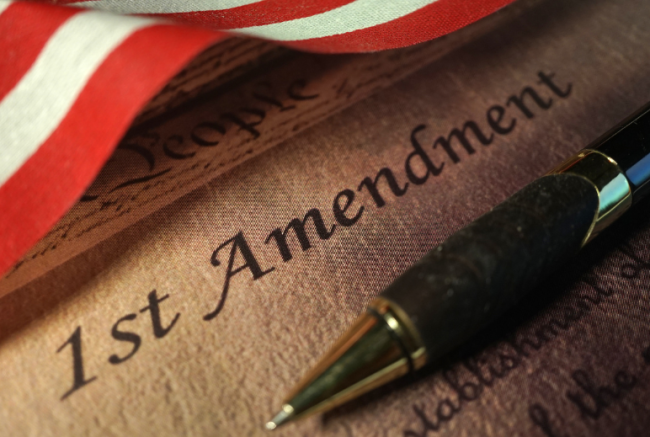You have /5 articles left.
Sign up for a free account or log in.

Kameleon007/Getty Images Signature
The House Republicans won a rhetorical victory last month in the congressional hearing addressing antisemitism on college campuses. The then presidents of Harvard University, the Massachusetts Institute of Technology and the University of Pennsylvania could not thread the needle necessary to reconcile their institutions’ prior robust regulation of speech in the name of community inclusivity with their recent failure to take action against hateful speech—indeed, sometimes conduct—directed at Jewish students. Under questioning, the presidents appeared insensitive, evasive and inconsistent. In short, the leaders of our top universities, advised by a top law firm, got schooled.
But this rhetorical victory will soon prove Pyrrhic if higher education draws the wrong lessons. Already, mandatory diversity trainings and more aggressive code of conduct enforcement are being touted as solutions to our present morass. Indeed, it was not clear whether the Republican inquisitors wanted universities to follow the First Amendment and embrace broad speech protections or adopt more vigorous codes of conduct that would aggressively punish hateful speech.
What was clear from the hearing was that universities engage in viewpoint-based enforcement of their policies, with examples eagerly shared by Republicans, including speaker cancellations, faculty discipline and revocations of admission offers based on student social media posts. Such selective enforcement is not only politically toxic but legally problematic as a potential violation of Title VI of the Civil Rights Act and universities’ contractual promises of evenhanded conduct-code enforcement.
There is a principled and prudent way out of higher education’s crisis of its own making. Though they are not required to do so, private universities should explicitly embrace the First Amendment’s speech protections in their student handbooks and conduct codes. Language “tracking the First Amendment,” as some private universities claim to have, is not enough. Such policy statements are easily subject to manipulation by poorly monitored decision-making bodies such as university conduct committees and offices of equity. Indeed, in today’s academic climate—where universities have punished silence and offer trainings that state that “cisheterosexism” and “fatphobia” are “abuse”—vague suggestions in student handbooks that speech will only be sanctioned when it becomes conduct provide little comfort.
By voluntarily embracing a First Amendment speech standard, private universities would incorporate by reference a large body of case law and evaluative principles. In an area as confused and subject to manipulation as speech and conduct codes, this approach has obvious benefits. University committees tasked with assessing a situation could rely on case law instead of their own often meager and contradictory internal precedents, and university counsel could provide clearer guidance.
Moreover, students or faculty who believe they were wrongly punished for their speech would be able to challenge the university in court for violating its First Amendment commitment. A court, rather than wading through opaque university promises and deciding whether they are enforceable, could instead look to well-developed First Amendment jurisprudence for guidance. With an explicit First Amendment endorsement, student handbooks could no longer be disregarded as too “indefinite” to establish any concrete promises of protection, as some courts have been inclined to rule.
If universities retain their current speech and conduct regulations, enforcement must be impartial. Given the one-sidedness of their present politics, a point revealed by the congressional hearing, elite universities are not well constituted to ensure neutrality.
But uneven enforcement creates legal and regulatory risk. Title VI of the Civil Rights Act requires that universities accepting federal funds not discriminate based on race. The Biden administration has announced a number of civil rights investigations sparked by the present speech controversy. Should a Republican win the presidency in 2024, we can anticipate even more aggressive investigations and sanctions, including the possible loss of federal funding. Moreover, students are already bringing private litigation alleging both Title VI and contract violations stemming from universities’ inconsistent enforcement of their speech and conduct rules.
By contrast, a private university’s promise to commit to the First Amendment would neither imperil learning nor encourage chaos in America’s most elite private institutions of higher education. We know this because our nation’s public institutions are already subject to the First Amendment as state actors.
And public universities seem to be faithfully following the First Amendment. In the Foundation for Individual Rights and Expression’s university speech rankings, 45 of the 50 best colleges for speech are public institutions, with private colleges taking the majority of the bottom slots. Yet state universities have not experienced the same campus disruptions as their more censorious private peers. Indeed, it seems that allowing students to debate hard topics within the broad—though not boundless—limits of the First Amendment may actually promote both education and order, two things sorely needed in these challenging times.




